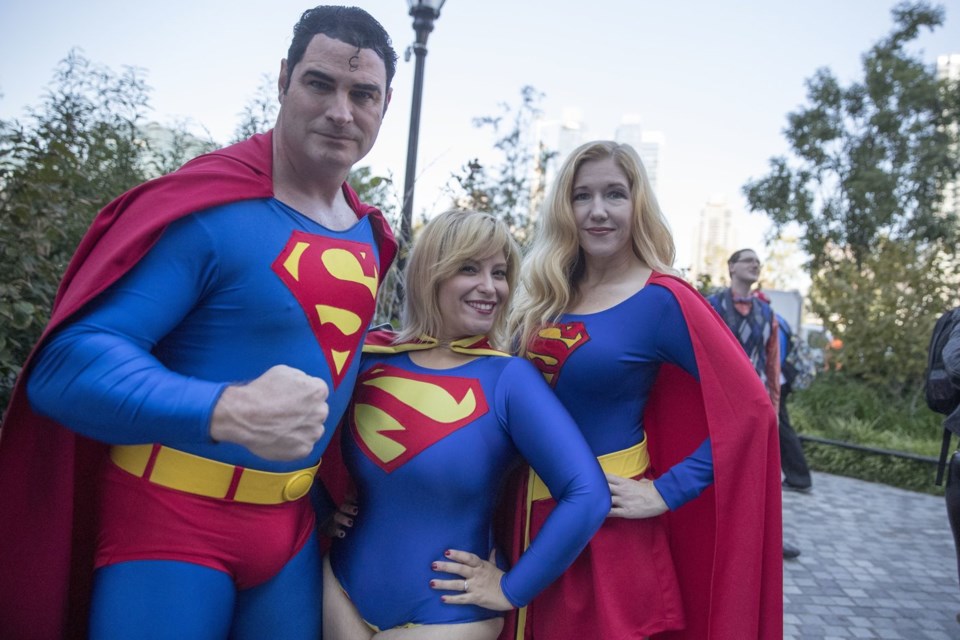Superman comics are not overtly religious. Yet faith and morality have been baked into this superhero character who was born Kryptonian, raised Methodist and created by two young Jewish men in 1930s Cleveland.
Superman’s character has been portrayed in the mold of Christ and Moses given how he constantly upholds the ideals of self-sacrifice, powerful leadership and compassion. While scholars, comic book writers and fans alike are struck by the religious undertones in Superman comics, they all agree that what sets Superman apart is his ability to bring hope in a hopeless world.
Superman Day and the ‘Superman’ summer movie release
Friday (April 18) marks the 87th anniversary of the original superhero’s birth. It also is the date Superman made his debut in an Action Comics issue.
There is much excitement in the Superman fanverse this year because of the much-anticipated ‘Superman’ movie directed by James Gunn, starring David Corenswet, the first Jewish actor to play Superman in a major film.
On his Instagram page on April 18, 2024, Gunn shared a photo of himself, Corenswet and Rachel Brosnahan who plays Lois Lane in the upcoming film, reading among several comic books, a reproduction of Action Comics #1 — the very first one featuring the Man of Steel.
In his Instagram post, Gunn also paid tribute to the superhero, saying: “He gave us someone to believe in, not because of his great physical power, but because of his character and determination to do right no matter what.”
Gunn’s film promises a return to a version of a vulnerable Superman who is rooted in values espoused by most faiths — goodness, compassion and hope.
Superman’s Jewish roots
Samantha Baskind, professor of art history at Cleveland State University, is Jewish and sees numerous parallels between Superman’s origin story and the history of Jews.
She says Superman’s solitary flight from Krypton in a small spacecraft is reminiscent of how Moses’ mother placed him in a papyrus basket and left him on the Nile, seeing it as his best chance of survival.
Some also compare Superman’s backstory to the Kindertransport, she said, referring to a humanitarian rescue program that transported nearly 10,000 children, mostly Jewish, from Nazi-controlled territories to Great Britain in 1938 and 1939. In Superman’s Kryptonian name, Kal-El, chosen by his original Jewish creators Jerry Siegel and Joe Shuster, the “El” in Hebrew connotes God.
“There’s also the thinking that Siegel and Shuster created Superman because they were these two, skinny, young Jewish men who couldn’t go out and fight Hitler, but Superman fought Nazis on the cover of their comic books,” Baskind said.
In some early editions, Superman held Hitler by his Nazi uniform as he begged for mercy.
Strong appeal to diverse groups
Superman is relatable to diverse populations regardless of religion, race or ethnicity.
Gene Luen Yang, who has written several Superman comics, sees his own experience as a Chinese American mirrored in Superman’s story — caught between two worlds and two cultures. Yang says he had one name at home and another at school, just like Superman. So, even though he is a practicing Catholic, Yang says he relates more to Superman’s Jewish roots.
Despite the religious undertones, Superman also appeals to those who are religiously unaffiliated, said Dan Clanton, professor of religious studies at Doane University in Nebraska, adding that the superhero’s story “truly encapsulates American civil religion.”
Neal Bailey, a longtime contributor to Superman Homepage, a fan site, is an atheist. He views Superman as a “philosophical pragmatist” with the ability to solve the most complex problems with the least amount of harm.
“He actually goes beyond religion to see our commonalities,” Bailey said. “Superman wouldn’t care about people’s religious beliefs. He would care more about whether they are living up to their human potential.”
Superman inspires humans to do better
Grant Morrison, one of the best-known writers of Superman comic books, said in a 2008 interview that humans become what they imitate, which is why he made Superman an inspirational character.
Superheroes have received less-than-flattering treatment in recent films and television shows. For example, in “The Boys,” a comic book turned Amazon Prime series, the Superman-like character, Homelander, is a government-sponsored hero whose smiling exterior conceals the heart of a sadist. Gunn’s Superman is expected to change that trajectory with a superhero who will reinforce the character’s core value of preserving life at any cost.
An altruistic view of Superman can be found in the recently concluded “Superman & Lois” television series on the CW Network in which after defeating Lex Luthor in a final battle, the couple settles down in a small town and starts a foundation to help others.
“I didn't just want to be a hero that saves people,” the Superman character played by Tyler Hoechlin says in an epilogue to the series. “I wanted to connect with them. To change their lives for the better.”
___
Associated Press religion coverage receives support through the AP’s collaboration with The Conversation US, with funding from Lilly Endowment Inc. The AP is solely responsible for this content.
Deepa Bharath Of And Bob Smietana Of Religion News Service, The Associated Press



